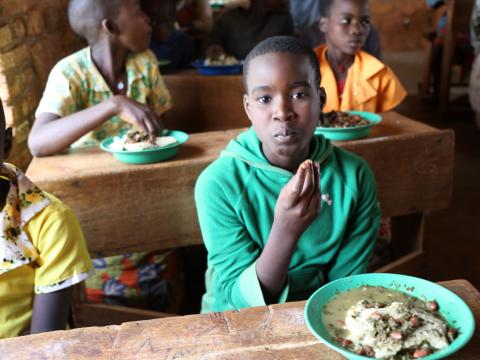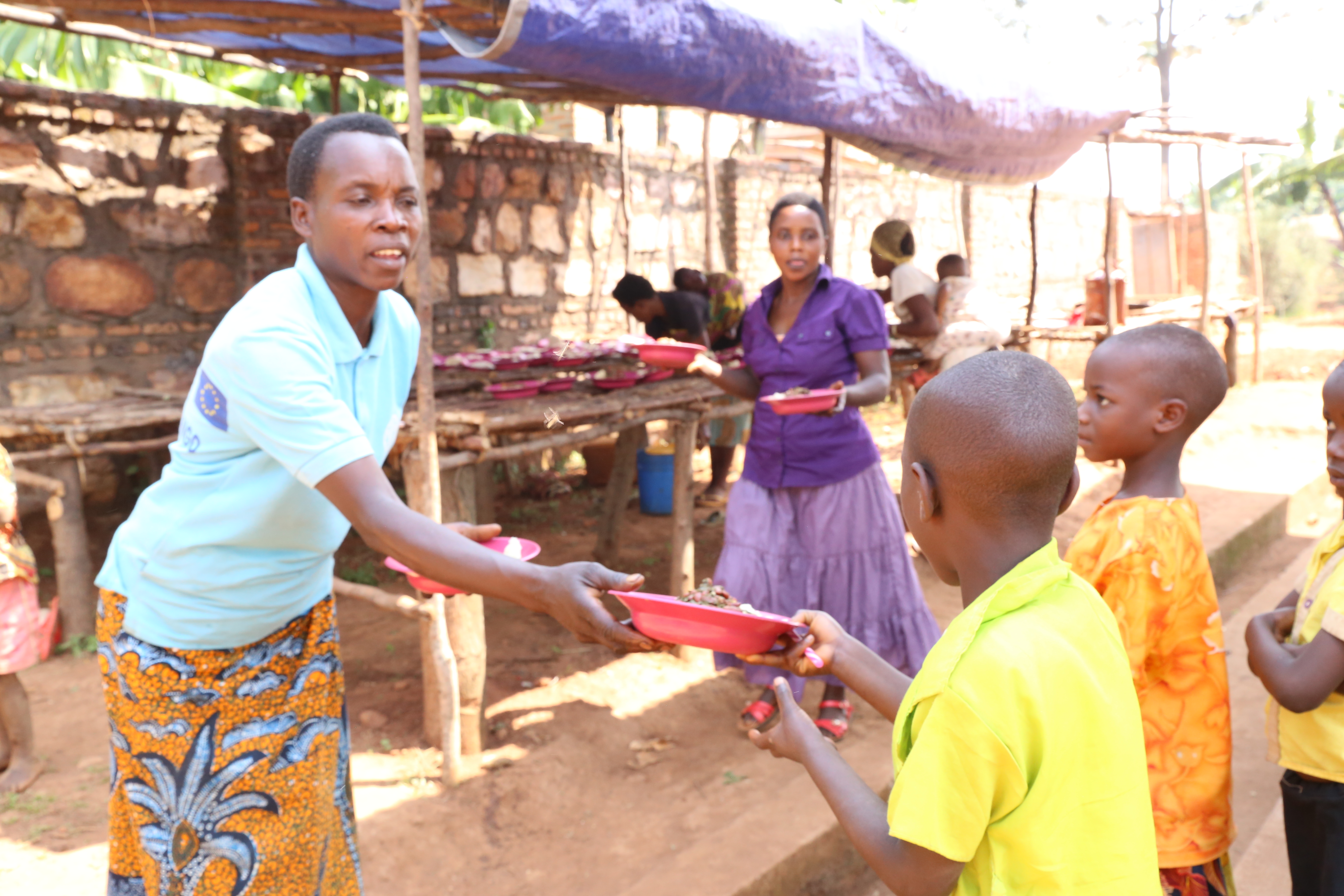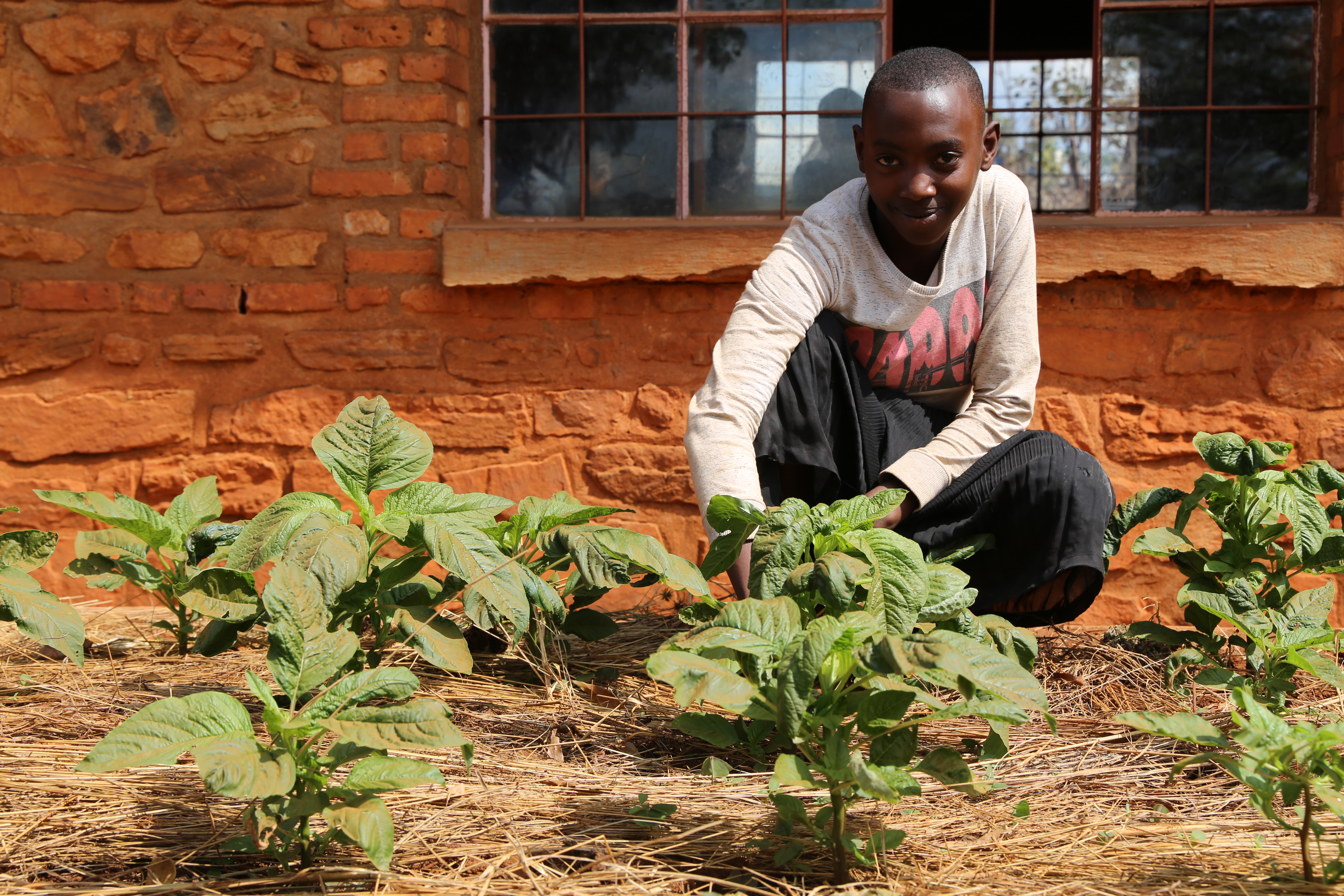School feeding project paves way to increased attendance in Muyinga

Mwakiro II Basic School in Mwakiro commune is situated 53kms of Muyinga province centre in the northern part of Burundi.
The dry season is starting, with the sun shining bright, and school activities going on as usual. The closer you get to the school, the smell of food and fumes are felt and one can see from afar a group of people cooking in big pots.
The school is running a canteen where children get lunch at noon.
Inside Grade 6 classroom there is Ange, 16. Two years ago, Ange got sick and missed a whole school year. This year, she resumed and is happy to have lunches at school.
“As soon as I recovered, I decided to resume. I did this mainly because I had difficulties getting food at home, all whilst at school children were eating at midday”, says Ange.
Oscar Ntawuyankira, Mwakiro II Basic School headmaster, says that there are parents that are very poor who fail to provide for their children. This affects their children in many ways, including leading to poor performance or dropping out.
According to a study done in 2018 by the national education office for planning and statistics (BPSE) there are high school dropout rates nationally (8%) and high grade repetition rates (27.7%), while transition to secondary schools is only at 49%.
In Mwakiro, the situation is changing for the better since World Vision was blessed with funding from the United Nations World Food Programme for the Home Grown School Feeding project.
“Before, an average of 60 children could leave the school each year; only three have left for this year", says Oscar. "Overall performance has increased to 76%, and good health among students is noticeable”.
The funding is enabling school canteens to be run in 90 schools in Muyinga province, and helps approximately 50,000 school children benefit from the Home Grown School Feeding project which provides them with hot meals.
Rugero Jeremie, project coordinator, says that the project aims at helping increase the attendance of schoolchildren in pre-schools and targeted basic education schools through school feeding initiatives.
School headmasters in Mwakiro affirm that since the project has been implemented, enrolment increased and retention also”, says Oscar Ntawuyankira, headmaster of Mwakiro II Basic School that hosts 435 schoolchildren.

In Ange’s class, they are 51 children, and no one has dropped out since this school year began. “This wouldn’t be the same if World Vision would not be implementing a school canteen here”, she says.
The food served in the canteens is made of maize bread, vegetables, fish, and beans. Schools either provide vegetables that they planted near their schools, or children collect them from their homes.
Nsabimana Clemence, a mother of two children that benefit from the canteens is happy to offer her services.
“As parents we avail ourselves to cook the food, bring water and firewood. We do it for free as it is for the betterment of our children”, says Clemence, who is also the head of the school canteen management committee at Mwakiro II Basic School. The committee oversees the rations offered to children, including stocks and quantities needed each day.
According to her, the canteen has been incredibly helpful as she gets time to work on her farms without worrying about the time to prepare food as they go to school.

Clemence, who appreciates the initiative as a parent, notes reduced absenteeism among schoolchildren and social cohesion among them as they sit together to share food.
Schools’ authorities work with committees run by parents to make the canteens successful. In Mwakiro II and in other schools where the canteens are run, they planted amaranths, eggplants, onions, and bananas to complement the food availed by World Vision thanks to World Food Programme support.
Some schools keep guinea pigs and have pigsties to complement the rations provided by World Vision.
Such initiatives also enable schoolchildren to take the seedlings and plant them in their homes. “Malnutrition-related diseases decreased significantly among school children”, says Oscar.
Improvements at school nurture improvements at homes
The study done by BPSE in 2018 also reveals that some root causes of dropouts and low retentions are lack of hygiene care in open and bad latrines, especially for girls.
Through the Home Grown School Feeding project, hygiene was not left behind as improved nutrition goes hand in hand with improved hygiene.
“We sensitise families to have improved latrines. This means a latrine deep enough, well covered, roofed, with a door and equipped with a tippy tap. We were told that without hygiene, diseases are welcome”, says Jeannette, 13, a member of a hygiene club at Mizuga Basic School. World Vision has initiated 142 hygiene clubs in Muyinga.